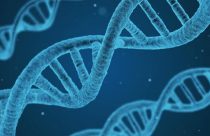Does Research Need a Chief Science Advisor?

Europe’s First CSA
At the beginning of 2012, Professor Anne Glover, a Scottish molecular biologist at the University of Aberdeen and former Chief Science Advisor (CSA) for Scotland, was appointed as the first ever CSA to the European Commission.
Dr. Glover was reporting to the then EU President, José Manuel Barroso, with whom she did not meet for the first 51 days of her employment!
The creation of the role was by no means popular or unanimous within the EU, and at the completion of her three-year term in December 2014, Professor Glover was notified that the role would be scrapped for the foreseeable future under current EU President Jean-Claude Juncker.
In addition to keeping her professorial responsibilities in Aberdeen, Dr. Glover fulfilled four roles as the CSA:
- Advisor to EU President Barroso on science and technology issues
- Liaison with other science advisory bodies of the Commission and Member States to ensure a consistent message
- Monitoring science and technology forecasting to identify opportunities and threats for Europe
- Promotion of the European culture of science and technology on her travels around the world
When you consider that the dismantling of the Chief Science Advisor role in Europe coincided with the decision by the European Commission to appropriate €2.7 billion ($3.4 billion) from the EU’s science fund, Horizon 2020, to kick start an agenda of economic growth initiatives, the extremely negative reaction from European researchers was to be expected.
The Role of the CSA in USA
The United States of America has had a Chief Science Advisor in one form or another since the Soviets launched Sputnik in October 1957 at the height of the Cold War.
In recent years, however, the CSA’s role has become more prosaic in nature. Attention has focused more on budget appropriations for scientific research (separate from the military and NASA) rather than fulfilling any advisory role in the development of presidential policy.
There is a President’s Council of Advisors on Science and Technology (PCAST), co-chaired by Dr. John P. Holdren, who is Assistant to the President for Science and Technology, and Director of the White House Office of Science and Technology Policy (OSTP).
A New Vision is Required
Given the seismic changes currently taking place in academic research and the subsequent publication of that research, it would seem that now would be an opportune time to revisit the role of the Chief Science Advisor.
The OSTP did take a stand on public access to federally funded research data with its 2013 directive that all agencies spending more than $100 million a year on R&D should make results available within a year. Beyond that, however, we seem to be sorely lacking a formal representative for scientific research to which key stakeholders can turn for input, guidance, and feedback.
If you consider the role of the Surgeon General as “the Nation’s Doctor,” much of the public face of the office is the provision of information on health and wellness. However, in 2010, the Affordable Care Act designated the Surgeon General as the “Chair of the National Prevention Council, which provides coordination and leadership among 20 executive departments with respect to prevention, wellness and health promotion activities.”
Perhaps there could be a similar role for a more clearly delineated Chief Science Advisor to provide coordination and leadership between the federal agencies that fund research.









